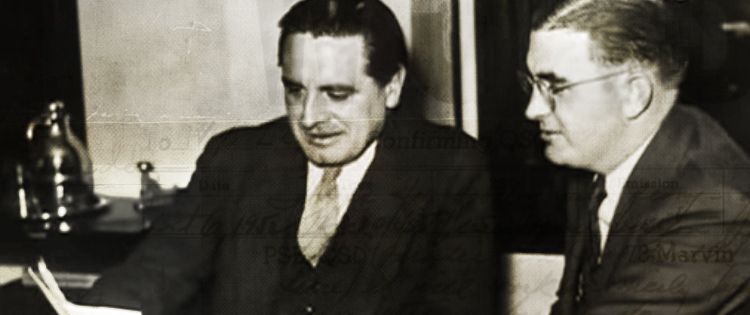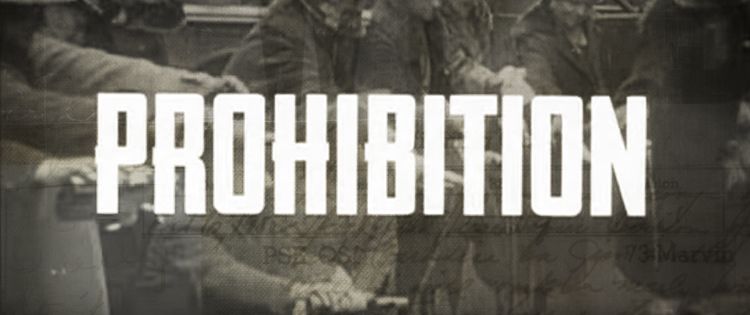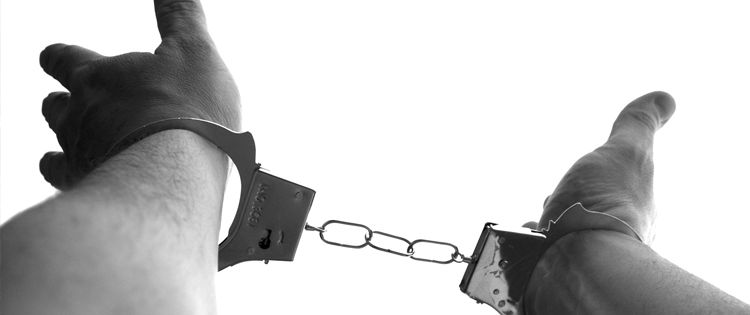Ever wonder how the war on Marijuana first began and why? With Pot Prohibition finally on the edge of falling into the pages of history books, there are still many who have no idea how it all started, and more importantly WHO started it. Let’s go back to history and get to know a man named, Harry Anslinger, and his antagonistic role.
The roots of the movement were largely political and racial and had their beginnings in complex geopolitical events that resulted in two world wars and then the Cold one.
First targeted after WWI to undermine both India and Turkey’s agricultural products, both stigma and then formal prosecution for cultivation, possession and use of the drug were cynical tools wielded by people who sought to establish a “New World Order” for the last century.
In the United States, the main ringleader, for many decades, of this movement to ban the use of cannabis for any purpose, was a man by the name of Harry Anslinger.
Harry Anslinger: An Ardent Evangelist & Racist

Harry Anslinger was the nation’s first drug czar, appointed by President Hoover in the depths of the Depression. Described as a cross between Willliam Jennings Bryan and Reverend Jerry Falwell, he was first an ardent backer of alcohol prohibition who found himself out of a job after alcohol was re-legalized in the 1930’s.
He was also an ardent racist. As he was quoted as saying, “Reefer makes darkies think they’re as good as white men. The primary reason to outlaw marijuana is its effect on the degenerate races.”
His profile of the average toker of the time was that “most are Negroes, Hispanics, Filipinos, and entertainers. Their Satanic music, jazz, and swing result from marijuana use. This marijuana causes white women to seek sexual relations with Negroes, entertainers and any others.”
Using the mass media of the time, including the media empire of William Randolph Hurst of “Citizen Kane” fame, Harry Anslinger made marijuana prohibition his personal war on what he saw as the moral degeneracy of his day. This included not only extreme racist beliefs but also a personal antipathy to jazz.
From his powerful political pulpit, Anslinger was also perhaps the most influential person in the movement to ban all forms of cannabis and hemp production and use in the United States for a period of 30 years.
He was the first Commissioner of the U.S. Treasury Department Bureau of Narcotics from 1930 to 1962, and then the chief U.S. delegate to the international drug agencies until 1970.
As a result, his policies fundamentally shaped some of the worst and most repressive anti-cannabis policies both in the United States and globally.
A Drug War To Stamp Out Competition

Harry Anslinger also had other motives as his campaign rolled forward. Ostensibly his punitive policies had what seemed to be a laudable goal – preventing children from getting their hands on drugs. Yet he also opposed realistic drug education, including for teenagers, on the grounds that an understanding of the effects of cannabis, in particular, was the same thing as encouraging youth to try it for themselves.
From his powerful post in Washington, he elicited a powerful group of supporters – mostly politicians, who cast themselves as “drug war warriors.”
In reality, however, what Anslinger and his supporters sought to achieve was not only social control but the creation of a safe haven for two emerging industries at the time which saw cannabis and hemp as direct threats to their commercial interests.
The first was eliminating the idea of marijuana as an effective natural medicine at a time when the corporate pharmaceutical industry was just realizing the impact of penicillin and other drugs.
However, the war did not stop here. Anslinger’s campaign was also targeted at banning the production of commercial hemp (introduced, albeit briefly by President Roosevelt to help struggling farmers in the South).
The reason? Hemp fiber was a considerable competition to the synthetics industry, at the time also gaining power in the United States.
Punishing Patients

One of the most long-standing impacts of Anslinger, beyond just harshly penalizing those who used pot as well as other narcotics, was the federal government’s punishment of patients who used narcotics it deemed “unsuitable for medical purposes.”
Perhaps Anslinger’s most famous victim was the jazz singer Billie Holiday, who was singled out by Anslinger because of her race, gender and profession. He is credited for ruining her career. As Holiday wrote in her biography, “Imagine if the government chased sick people with diabetes, put a tax on insulin and drove it into the black market…then sent them to jail.”
In effect, Holiday’s words, written about the refusal of authorities to get her treatment for a heroin addiction, became accurate reflections of what the federal government ended up doing to marijuana patients as the war against marijuana became more pronounced after Holiday’s death.
A Tortured Legacy
As the war on marijuana finally comes to a close, legalization reformers are in fact merely undoing the decades of active campaigning and propaganda first propagated by the work and crusade of one man.
And as marijuana, for both medical and recreational use, becomes legal in more and more states and countries, it is safe to say that there are few legacies more worth undoing.
Do you know other personalities responsible in pot prohibition?
Share what you know in the comments below!
- Guenter Weiglein – The Persevering Patient - July 7, 2017
- Dr Peace – A German Cannabis Doctor On The Go - July 5, 2017
- The German Marijuana Edibles Market - July 3, 2017


